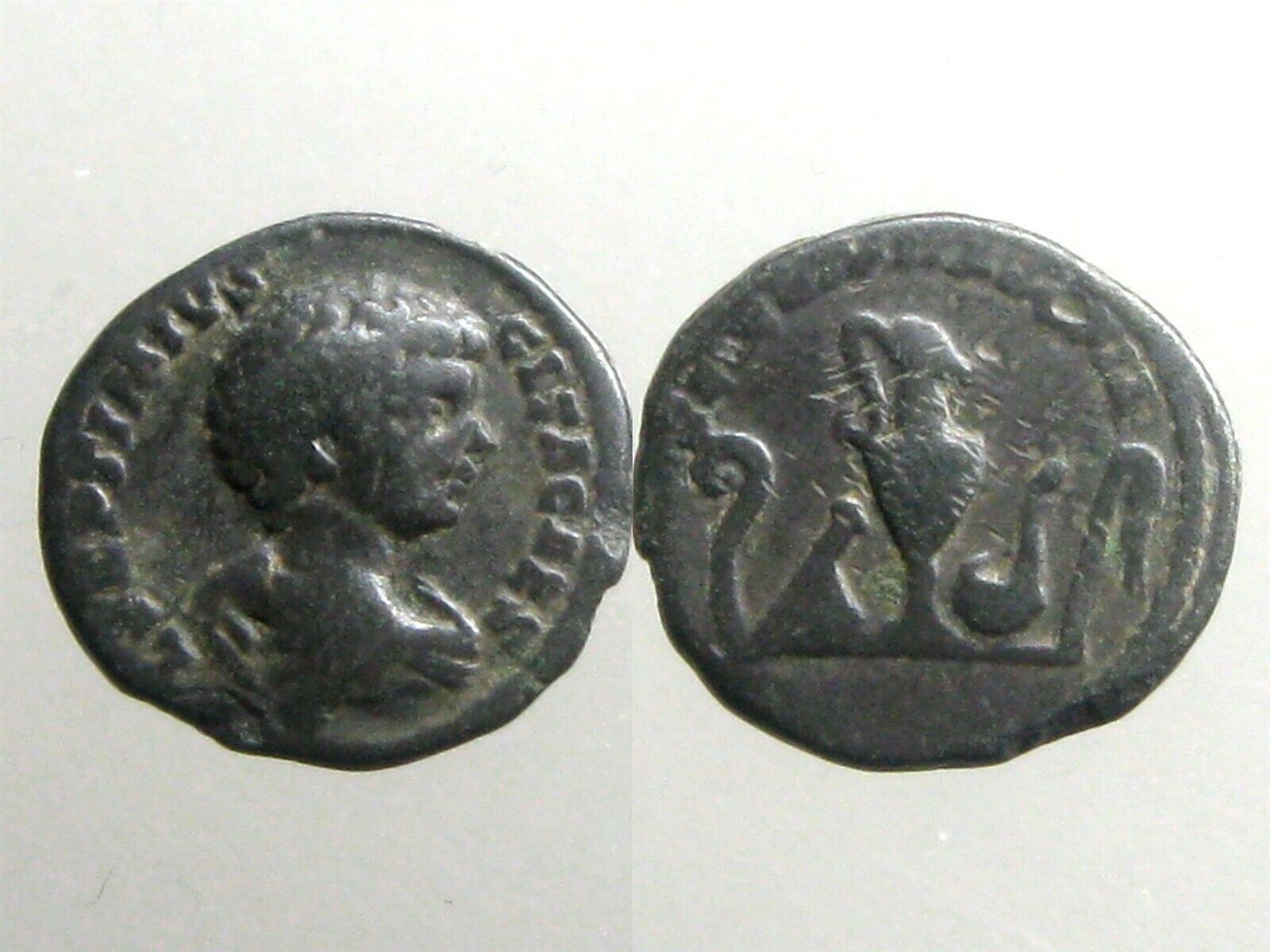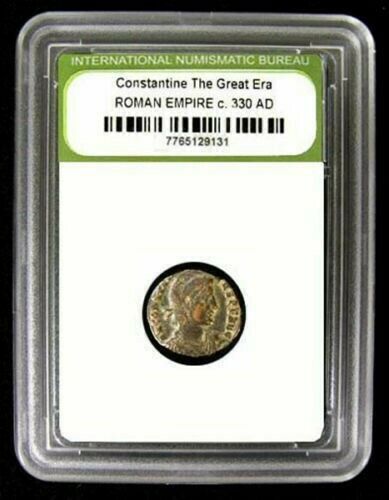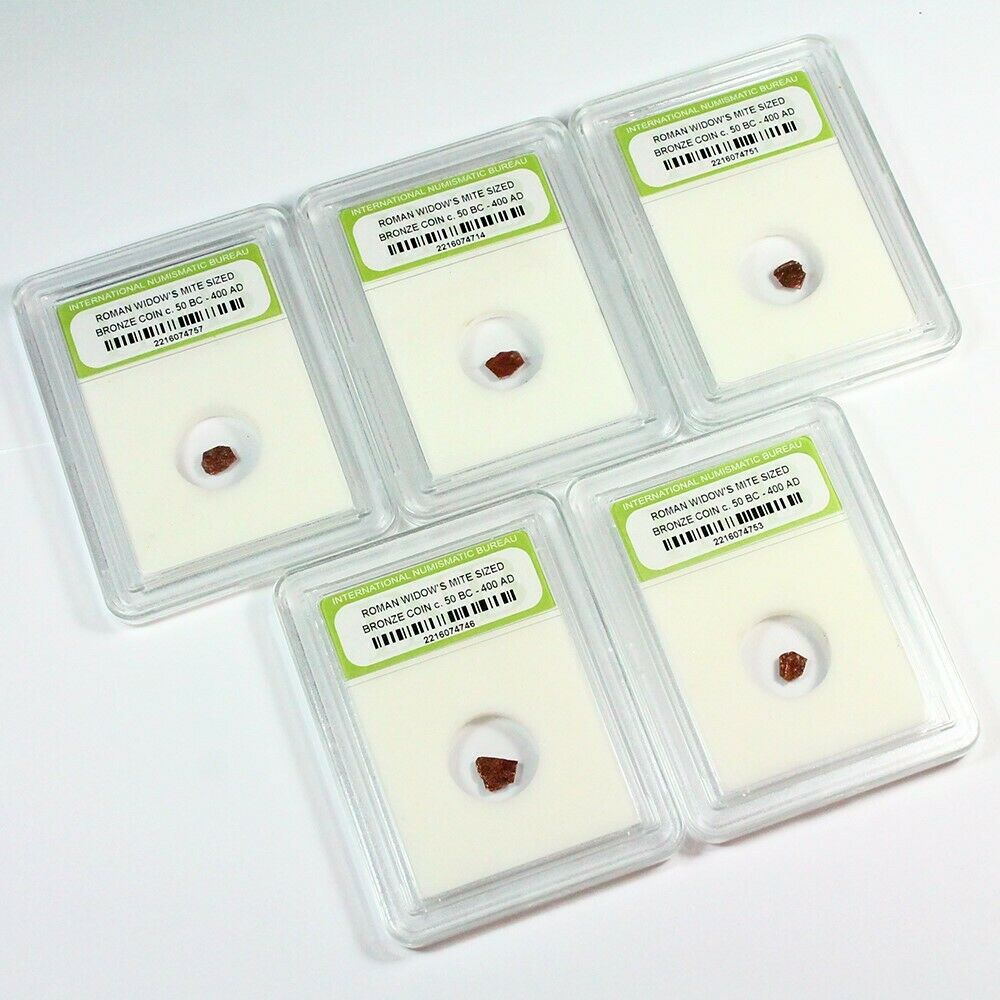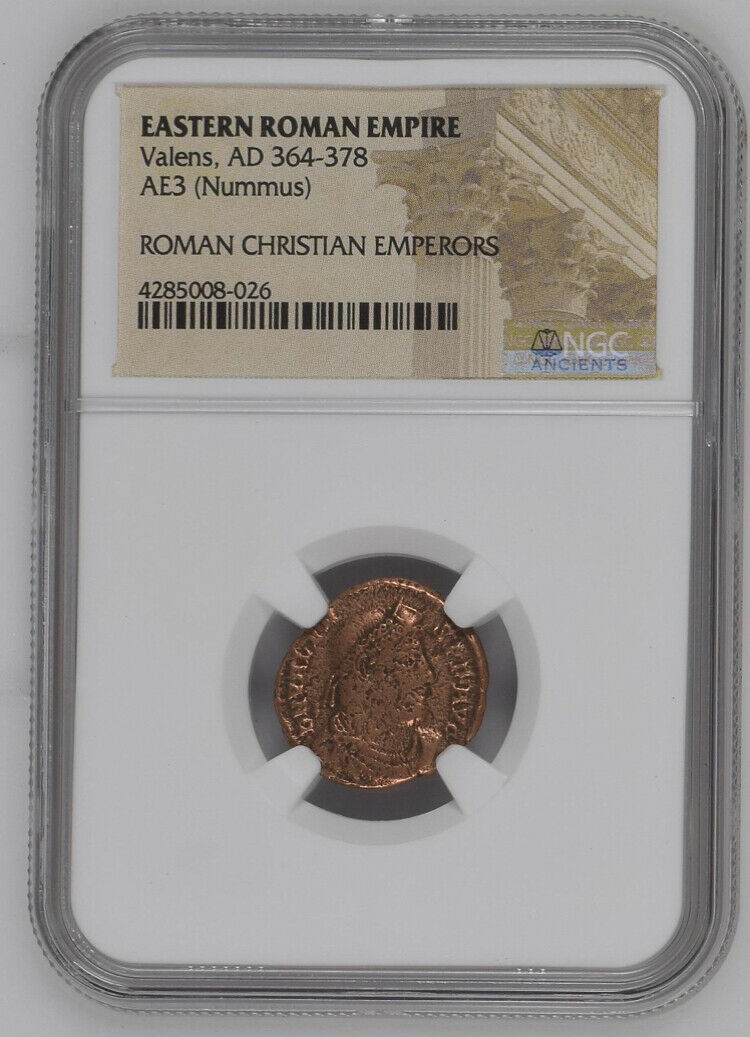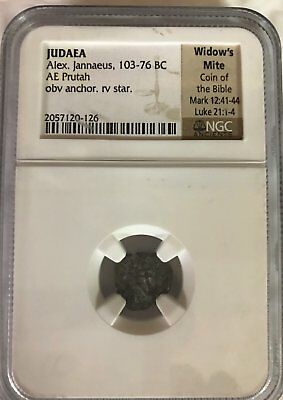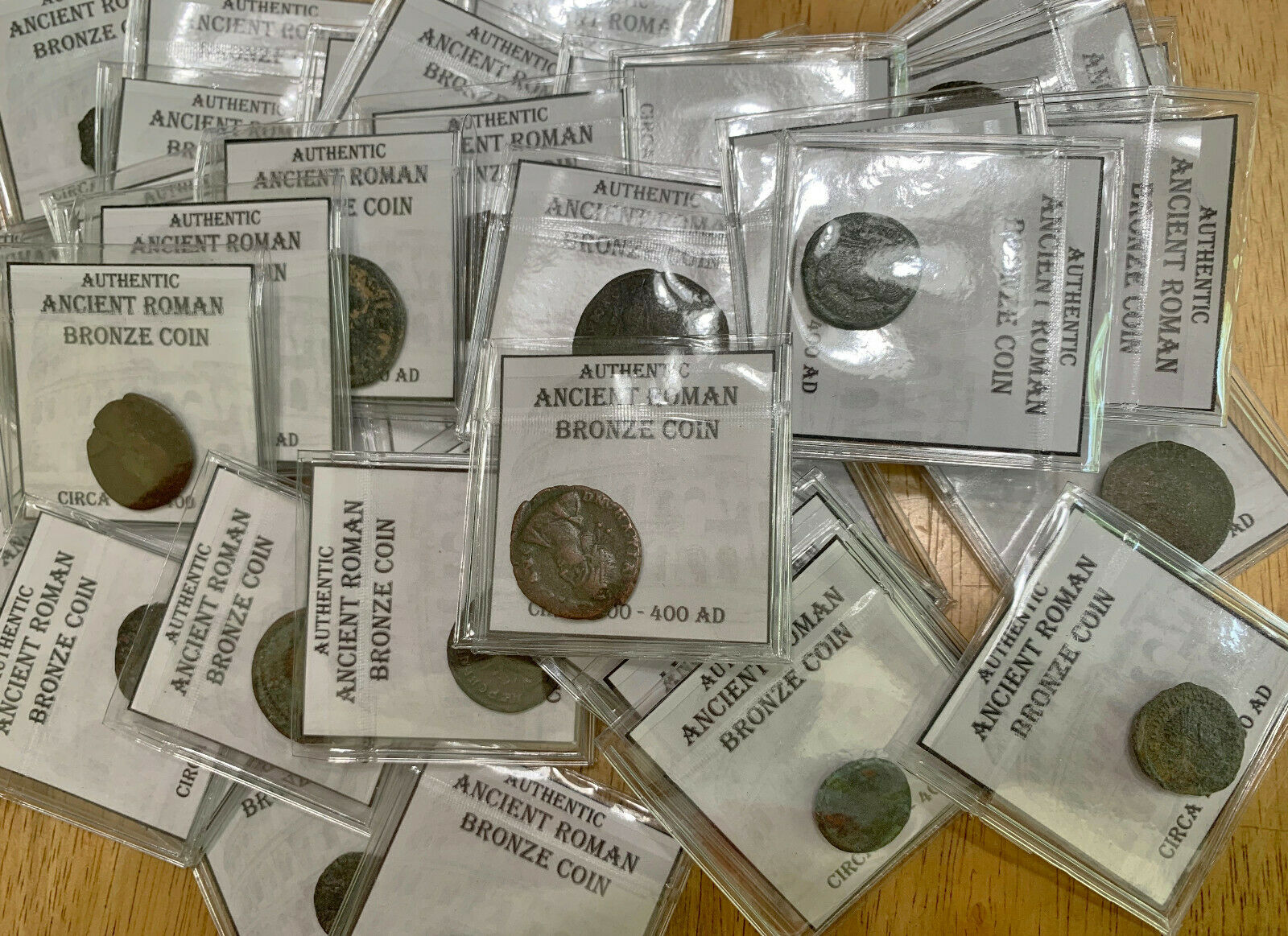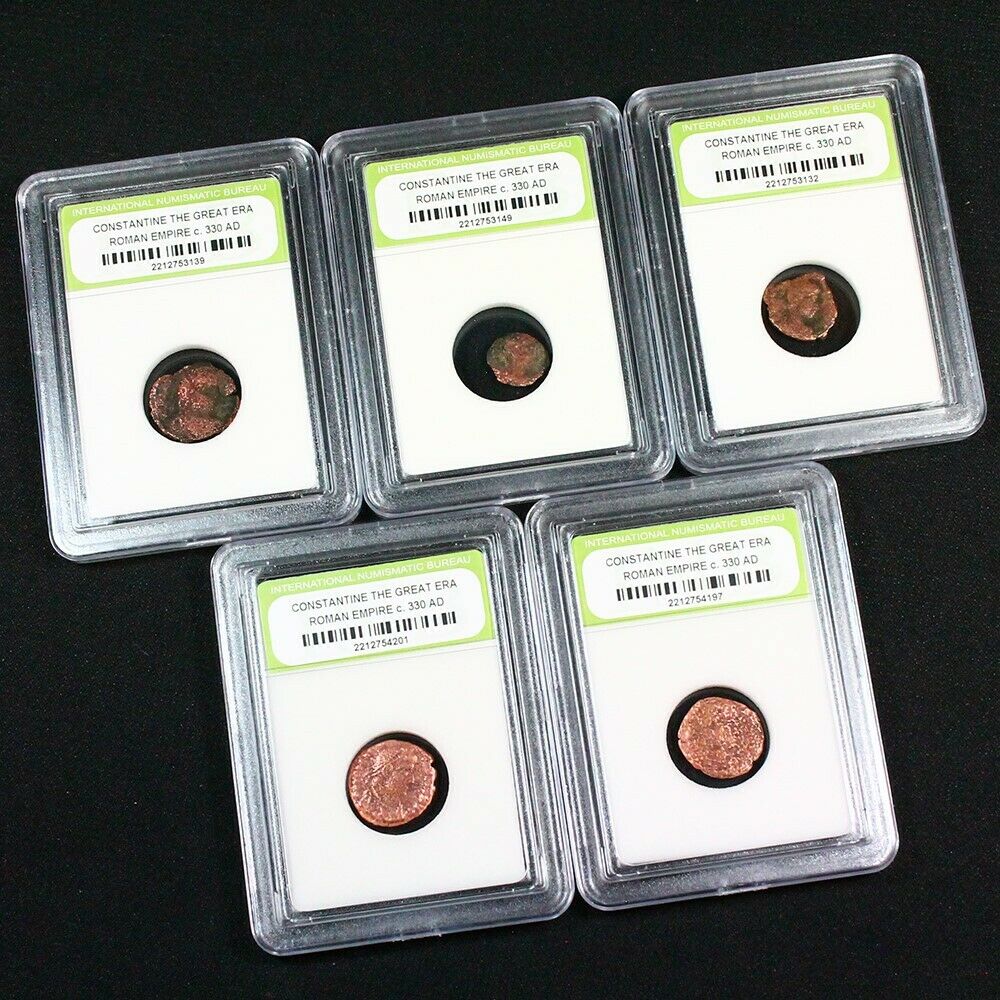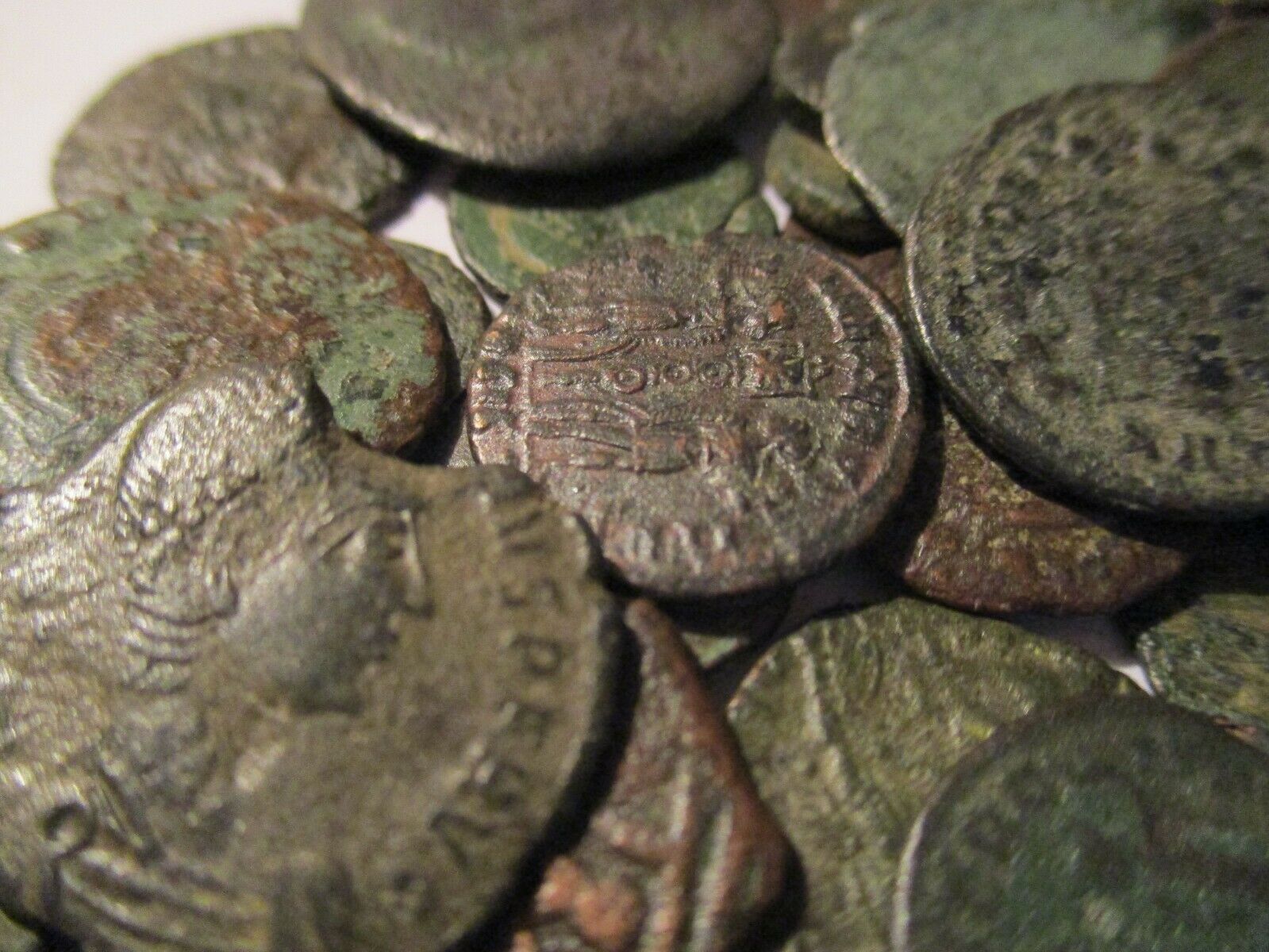-40%
GETA AE LIMES DENARIUS_____Roman Empire_____FORTUNA RESTING ELBOW ON WHEEL
$ 12.4
- Description
- Size Guide
Description
20Z25FRASCATIUS ANCIENTS
A BEAUTIFUL ROMAN IMPERIAL AE LIMES DENARIUS OF GETA FROM 198 - 209 AD.
Limes denarii are thought to be coins minted either officially or pseudo-officially on the fringes of the empire. Perhaps they were used to pay soldiers on the extreme frontiers of the Roman territories or maybe to bolster the economy of regions far from the normal means of monetary distribution.
Termed Limes (Lim-ace) or coins of the borders, these tend to be coins of necessity. They may also be officially sanctioned issues for use in regions where political unrest made it hazardous to ship large amounts of silver. These low value issues could have served troops on the front and been redeemable for good coinage when they returned to the stable regions.
These AE denarii are more or less faithful copies of silver prototypes, and we know that they were both struck and cast in various places. An interesting part of Roman History.
THE SIZE IS 17.0 MM AND 2.75 GRAMS.
RIC 3
OBVERSE – P SEPTIMIVS GETA CAES, bare-headed and draped bust right
REVERSE – SEVERI PII AVG FIL, emblems of the pontificate: lituus, knife, vase, simpulum and sprinkler.
GETA
Publius Septimius Geta was born in Rome on March 7, 189, by eleven months the younger brother of Caracalla and the son of the future Emperor Septimius Severus (first of the soldier emperors) and his wife Julia Domna (great-aunt of Elagabalus).
Geta's older brother Caracalla was made Caesar in 195, but Geta had to wait for elevation to Caesar until 198 when Caracalla was made Augustus. In 205 Geta and Caracalla were consuls together although they did not get along. When their father died, Caracalla tried to rule alone with his brother Geta playing the role of emperor in name only, but Geta or their mother Julia Domna wouldn't go along with this. Geta and Caracalla tried to divide the empire, but Julia Domna stood opposed.
Caracalla tricked Geta into meeting him for a reconciliation. They met in the presence of Julia Domna in late December 211. Geta was assassinated by men hidden in the room. He is said to have died in his mother's arms.
When the name of someone was erased from the monuments, it is referred to as a damnatio memoriae. Caracalla did this to his brother Geta, but his attempts weren't entirely successful. Coins depicting Geta survive, but there was a triumphal arch celebrating the victories of Emperor Septimius Severus, Caracalla, and Geta in wars against the Parthians (A.D. 195) and the Osroeni (A.D. 197) on which Caracalla had Geta's name removed.
LEGACY OF THE ROMAN EMPIRE
During the later republic and most of the empire, Rome was the dominant power in the entire Mediterranean basin, most of western Europe, and large areas of northern Africa. The Romans possessed a powerful army and were gifted in the applied arts of law, government, city planning, and statecraft, but they also acknowledged and adopted contributions of other ancient peoples—most notably, those of the Greeks, much of whose culture was thereby preserved.
The Roman Empire was distinguished not only for its outstanding army—the foundation upon which the whole empire rested—but also for its accomplishments in intellectual endeavours. Roman law, for example, was a considered and complex body of precedents.
Rome’s roads were without match in the ancient world, designed for comparatively fast transportation and adapted to a wide variety of functions: commerce, agriculture, mail delivery, pedestrian traffic, and military movements. Roman city planners achieved unprecedented standards of hygiene with their plumbing, sewage disposal, dams, and aqueducts. Roman architecture, though often imitative of Greek styles, was boldly planned and lavishly executed. Triumphal arches commemorated important state occasions, and the famous Roman baths were built to stir the senses as well as to cleanse the body.
Finally, Latin, the language of the Romans, became the medium for a significant body of original works in Western civilization. Cicero’s speeches, the histories of Livy and Tacitus, Terence’s drama, and above all the poetry of Virgil are all part of the legacy of the Roman Empire
A True Auction Environment –
Auctions start at $.99 with No Minimums and No Reserves.
FULL UNCONDITIONAL GUARANTEE OF AUTHENTICITY
If the buyer feels that the coin received is not as represented - just return the coin and the buyer will be fully reimbursed for the cost of the coin; the original shipping charge; and the cost to ship the coin back… No Questions Asked. If the buyer is not happy, please let me know, and I will do what I can to make it right.
NOTE: Frascatius is a life member (LM #6864) of the American Numismatic Association (ANA). Frascatius fully complies with the ANA Member Code of Ethics.
If you have any questions regarding this auction, please click on “Ask seller a question”.
I will be more than happy to provide you with a response.
Visit My eBay Store: Frascatius Ancient Coins
For those new to ancient coins, please contact me, and I will e-mail to you my "Beginners Guide for Ancient Coin Collectors - FAQ".
SHIPPING:
To the U.S. = .00 Insured Flat Rate
International = .50 Insured Flat Rate
Multiple items may be grouped at no additional charge at the above rates.
All items will be carefully packaged, protected & insured (private insurance).
Powered by SixBit's eCommerce Solution
